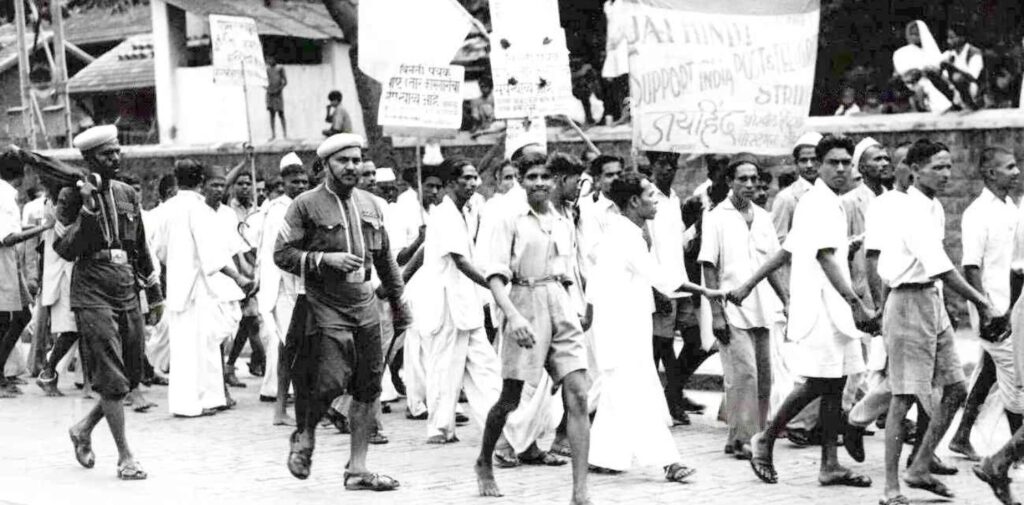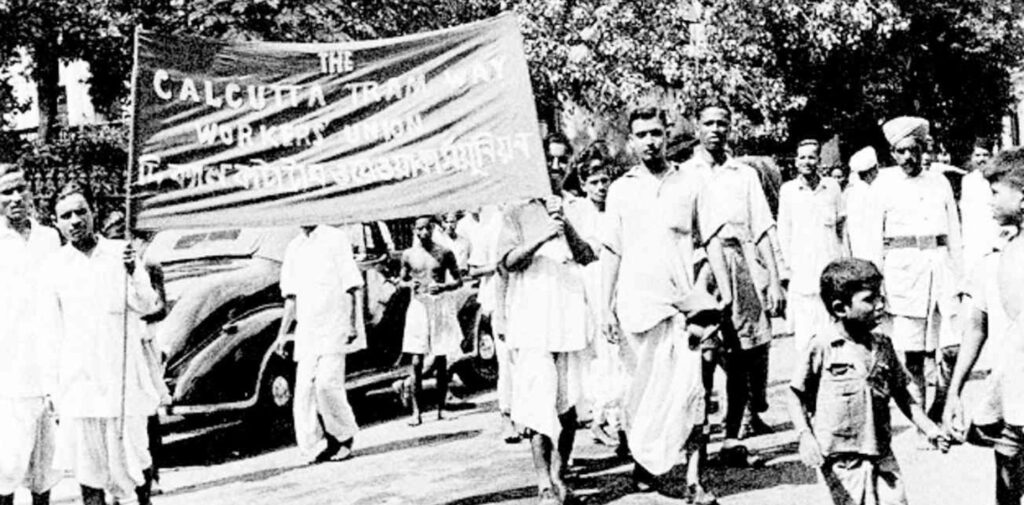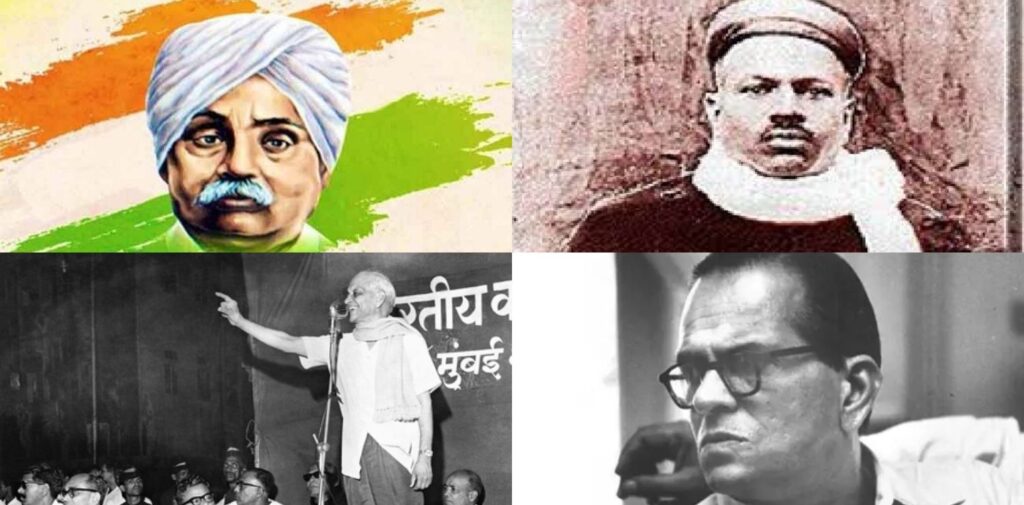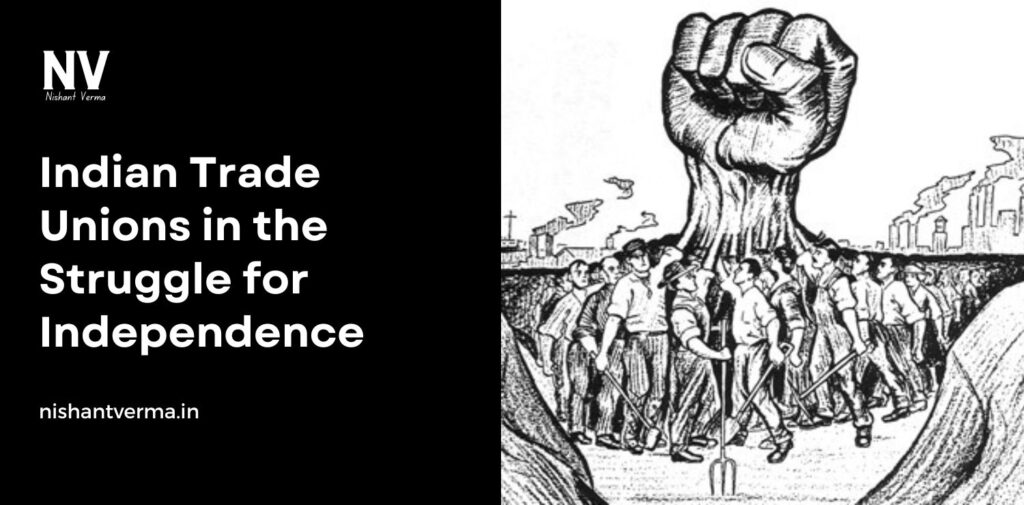The Indian freedom movement, which culminated in India’s independence from British colonial rule in 1947, was a collective effort that involved people from various walks of life. While most people associate the struggle for independence with the iconic leaders like Mahatma Gandhi, Jawaharlal Nehru, and Subhas Chandra Bose, it is important to recognize the significant role played by workers and their organizations—specifically Indian trade unions. These unions not only contributed to the fight against British colonial rule but also worked to improve the living conditions of Indian workers and brought issues like workers’ rights to the forefront of the national discourse.
In this article, we will discuss the Indian trade unions in the struggle for independence, their evolution, and how they contributed to the broader nationalist movement. We will also look at key trade union leaders and the challenges they faced in their fight for workers’ rights.
The Birth and Evolution of Indian Trade Unions
The origins of trade unions in India can be traced back to the late 19th century when the country was experiencing rapid industrialization under British rule. As industries like textiles, railways, and mining grew, workers began facing harsh conditions, long working hours, low wages, and unsafe environments. Despite their significant contribution to the economy, workers had little say in their working conditions or wages.
In response to these exploitative conditions, Indian workers began to organize themselves to demand better treatment. Early efforts to form unions were scattered and localized, but the first major trade union organization in India was the All India Trade Union Congress (AITUC), founded in 1920. The AITUC played a crucial role in the early labor movement and was closely aligned with the Indian National Congress (INC), which was already fighting for India’s independence from British rule.

The Trade Unions in the Independence Movement
The trade unions in the Indian struggle for independence was multifaceted. Workers were not only fighting for better wages and working conditions but also participating in the broader anti-colonial struggle against British exploitation. Below are some of the ways in which trade unions contributed to the national freedom movement.
1. Support for Civil Disobedience and Non-Cooperation Movements
In the 1920s and 1930s, the Indian National Congress launched several non-violent protests against British rule, most notably the Non-Cooperation Movement (1920-1922) and the Civil Disobedience Movement (1930-1934). Indian trade unions, particularly those affiliated with the AITUC, played an active role in supporting these movements.
Trade unions helped mobilize workers for strikes, protests, and boycotts of British goods. They encouraged workers to refuse to work in British-owned industries and institutions, which weakened the British economic hold over India. For instance, during the Civil Disobedience Movement, workers in the salt-producing areas of coastal India participated in the Salt March and the subsequent salt satyagraha.
Moreover, trade unions helped spread the message of non-violence and passive resistance to the working-class population, thus broadening the base of the independence movement. The participation of workers in these movements not only disrupted British economic activities but also contributed to the growing demand for self-rule.
2. Strikes and Industrial Action
Trade unions played a key role in organizing strikes in factories, mines, and transportation services. Strikes became an important form of protest against both British colonial rule and the exploitation of workers. The Great Bombay Textile Strike of 1946, for example, was a significant event in India’s history. Led by Lala Lajpat Rai and supported by the AITUC, the strike lasted for several months and highlighted the growing power of the working class in India.
In addition to general strikes, Indian trade unions also organized strikes in specific industries such as railways, mills, and plantations. These strikes often disrupted British colonial economic interests, which relied heavily on Indian labor to maintain the colonial economy. By organizing large-scale industrial action, trade unions were able to exert pressure on the British government to recognize the rights of Indian workers and address their grievances.
3. Building Unity Among Workers
Trade unions played an essential role in creating solidarity among workers, who were often divided along regional, ethnic, or linguistic lines. The trade unions brought workers together by focusing on shared issues such as poor working conditions, low wages, and long working hours.
The leaders of Indian trade unions encouraged workers to look beyond their immediate work-related concerns and see the larger picture of British exploitation of India as a whole. This helped foster a sense of national unity among workers, many of whom were previously unaware of the broader struggle for independence. Trade unions, thus, contributed to the development of a collective consciousness among the working class.
4. Social and Political Awakening
Trade unions also played a significant role in educating workers about their rights and the importance of political engagement. Many trade union leaders, such as N. M. Joshi, S. A. Dange, and B. T. Ranadive, were also active members of the Indian National Congress and shared its vision of a free and self-reliant India. They used their positions within the trade unions to spread political awareness among the workers.
These leaders educated the working class about the significance of their participation in the independence movement. They emphasized the connection between workers’ rights and national liberation. By doing so, they helped the working class realize that their struggle for better wages and conditions was intertwined with the broader national struggle against British colonial rule.
5. The Influence of Socialist and Marxist Ideas
In the 1930s and 1940s, socialist and Marxist ideologies began to gain influence among Indian trade unionists. Leaders like Subhas Chandra Bose and M. N. Roy promoted ideas of socialism and the need for a revolution against both colonial and capitalist exploitation. These ideas found a receptive audience among the working class, who were experiencing the worst effects of colonial rule.
The influence of socialist thought helped radicalize the labor movement, making it more politically aware and demanding more profound changes in society. The idea of a class struggle, which had been central to Marxist ideology, was adopted by some trade unions, and this made the labor movement more closely aligned with the broader goal of social justice and equality in an independent India.

Challenges Faced by Indian Trade Unions
While Indian trade unions played an important role in the struggle for independence, they also faced numerous challenges.
- Repression by the British Government: The British government frequently used repressive measures to deal with strikes, protests, and other forms of industrial action. Leaders were arrested, and unions were often banned or suppressed. The government used police and military force to break strikes and force workers back to work.
- Internal Division: Trade unions in India were not always united. There were divisions along ideological lines, with some unions aligning with the Congress Party and others with socialist or communist factions. This often made it difficult for workers to present a unified front in the struggle for independence.
- Economic Pressures: Many trade unions were underfunded and lacked the resources to sustain long-term strikes or protests. The workers, who were already economically disadvantaged, often faced hardship during strikes and could not afford to sustain their action for extended periods.

Key Trade Union Leaders and Their Contributions
Several key leaders played a pivotal role in shaping the labor movement in India:
- Lala Lajpat Rai: A prominent leader in the freedom movement, Lajpat Rai was instrumental in organizing the working class in Punjab and later in leading the 1921 Textile Mill strike in Bombay.
- N. M. Joshi: A founding member of the AITUC, Joshi was a key figure in advocating for workers’ rights and linking the labor movement with the larger nationalist struggle.
- S. A. Dange: A Marxist leader, Dange was an influential figure in the trade union movement and advocated for workers’ rights and socialism.
- B. T. Ranadive: Ranadive was a leader of the communist faction of the AITUC and was actively involved in strikes and industrial action.
Conclusion
Indian trade unions played an essential role in the fight for India’s independence. They were not only responsible for advocating for workers’ rights but also actively contributed to the broader nationalist movement. Through strikes, industrial action, and support for major national movements like the Non-Cooperation and Civil Disobedience Movements, trade unions helped weaken the British colonial economy and gave a voice to the working class. Despite the challenges they faced, trade unions made a lasting impact on both the independence struggle and the social reforms that followed after independence.
By contributing to the national consciousness of workers and building unity among the working class, trade unions played a crucial role in India’s journey toward freedom. Their legacy continues to inspire workers’ movements and labor rights activism in India today.




